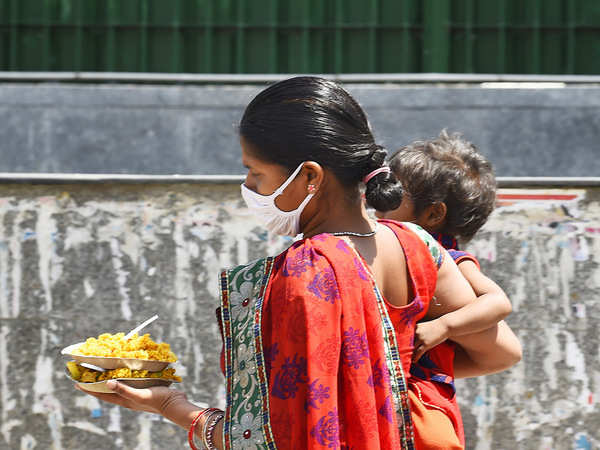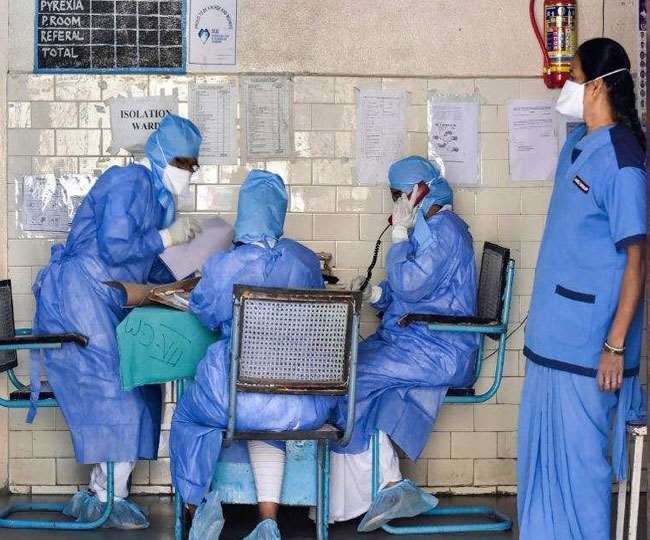Governments over the world are struggling to manage the COVID-19 pandemic. While discussing this crisis – impacts on women should also be part of the consideration, as Gender concerns are not yet shaping the decisions that mainly male leaders are making. At the same time, many of the impacts of COVID-19 are hitting women hardest.
Let’s have a look at Why and How :
- Even without a crisis, careing children and others at home, usually fall heavily on women’s duty list. Now, with the closer schools and offices, their workload has been increased. Thus, women are facing a compounding burden nowadays, especially when the option of domestic help is also unavailable.
- These times of social isolation, the risk of domestic abuse for women also increases. such a violent relationship is stuck at home and exposed to their abuser for long. Now after a crisis, this can be even harder for women to leave their abuser -Reason because that financial insecurity, which may become a major issue right after lockdown. The government should ensure that hotlines(eg.Nirbhaya, Nari sanrakshan gruh)and services for all victims of domestic abuse are considered “essential services” and are kept open for such needs. Law enforcement is sensitized to the need to be responsive to calls for victims.
- The economic and social impacts on all are severe, they are more for women. The closer or near to closer of many businesses could have a heavy effect on many women dominated professions like flight attendants, tour operators, sales assistants, etc. Few sectors are often already in precarious jobs and will probably not be paid nor entitled to paid leaves. Government should pay enough attention, who constitute the vast majority of the female labour force in developing economies, special efforts should be made to deliver compensatory payments.
- At the same time, women are at the forefront of the battle against COVID -19 as 70% of healthcare force has been managed by women. Now, exposing them to a greater risk of infection, crisis when they are underrepresented in leadership and decision-making processes in healthcare sector. so, attention must be paid to their personal safety and health. Providing personal protective two-layered masks and hand gloves not be sufficient, rather moving ahead with their menstrual hygiene, nutrition, regular health check up, mental health support, family domestic support, Give additional health insurance cover and rest time can also essential part to looking over.
- Finally, it is striking how many of the key decision-makers in the process of designing and executing the pandemic response are men. When any one of us switches on the media anywhere in the world we see a sea of men. Women Entrepreneur/celebrities /designated personalities are struggling hard to manage business/work and home board duties.
- Incorporates, whenever things come for cost cutting women still come first under “Hit target” because women are considered as “secondary source of income”. corporate bodies are having more male staff as permanent employees, than female. This is not surprising given that women still do not enjoy the same degree of participation in major decision-making bodies—governments, parliaments, cabinets, or corporations—as men do. Only 25 percent of parliamentarians worldwide are women, and less than 10 percent of Heads of State or Government are women. women are conspicuous by their absence in decision-making fora in this pandemic.
The government needs to respond and revise policy for betterment of women after/during this pandemic. Fundamentally, each and every policy response to the crisis must embed a gender lens and account for women’s unique needs, responsibilities, and perspectives. (Both financial and social).
Leaders must find a way to include women in response and recovery decision-making. Whether at the local, municipal, or national level, bringing the voices of women into decision-making will lead to better outcomes; we know from many settings that diversity of views will enrich a final decision. Alongside this, policy-makers should leverage the capacities of women’s organizations. Reaching out to enlist women’s groups will help ensure a more robust community response as their considerable networks can be leveraged to disseminate and amplify social distancing messaging.
Finally, This is a great opportunity to “unstereotype” the gender roles that play out in households/work areas /management systems /entrepreneurial sectors -in many parts of the world. These are the actions and issues are more urgent after and during lockdown. Building the nation in the needs of women offers an opportunity for us to “Build Nation Back With Betterment”.








